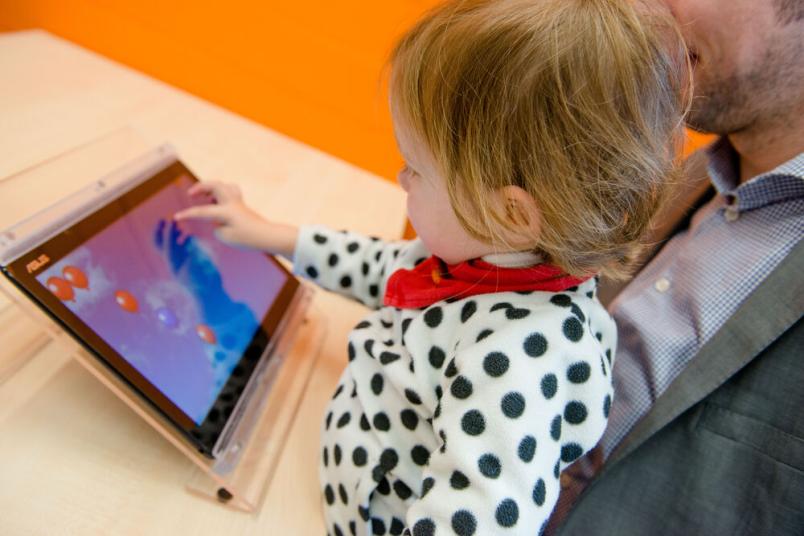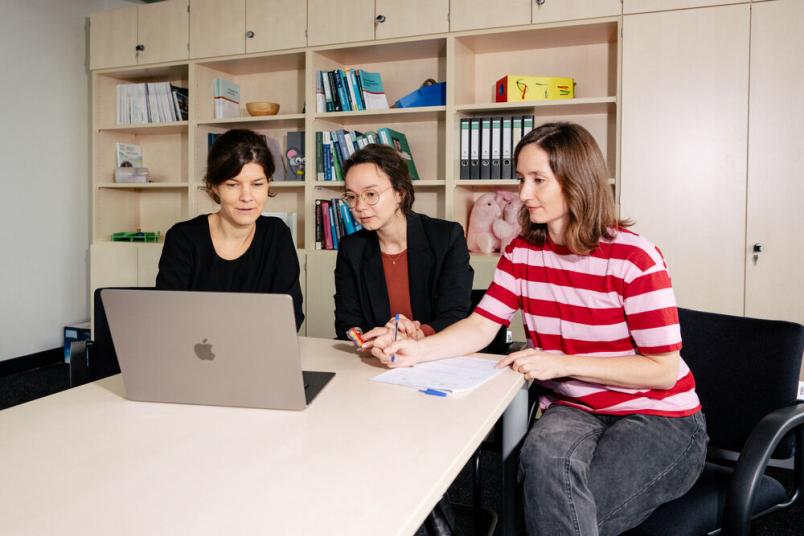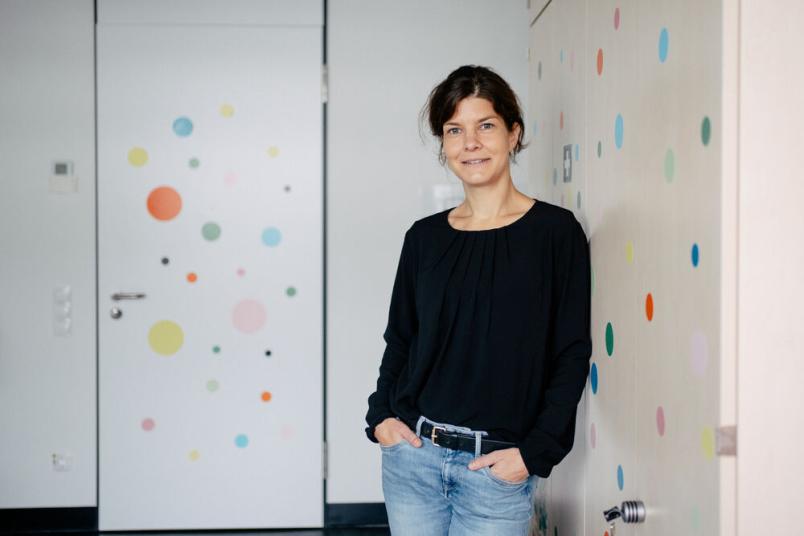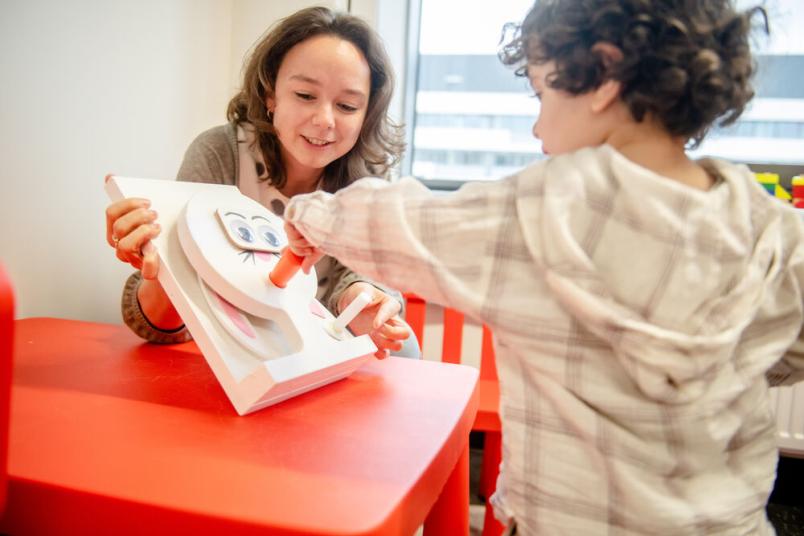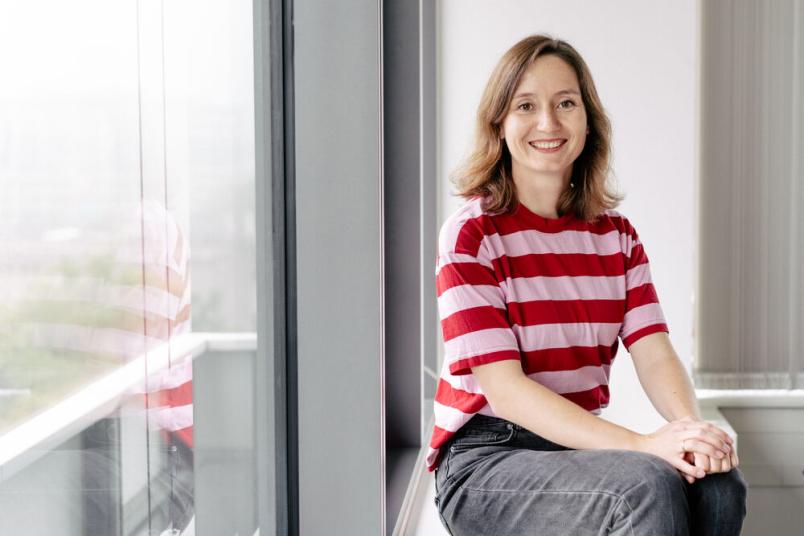Developmental psychology
Using a Tablet before Bed Not Nearly as Harmful as Believed
The blue light that tablets emit is believed to make sleep less restful. However, an extensive study with children was unable to prove this.
“Just one episode, then it’s off to bed!” This is how many parents start the nightly ritual of getting their children to sleep. Many, however, also experience a nagging feeling in the back of their head when they do so. It is often said that the blue light emitted by these devices makes it harder to fall asleep because it impacts the production of the sleep hormone melatonin.
Baby sleep and media use
Scientists Professor Sabine Seehagen, Neele Hermesch and Dr. Carolin Konrad from the Chair of Developmental Psychology at Ruhr University Bochum designed a comprehensive study to get to the bottom of this belief.
“We have been working on infant sleep and media use for a while now, and these are interesting topics for parents and researchers alike,” says Seehagen. “But this field of research is rife with correlative studies that look at how long children sleep, how much media time they had, and so on. But this approach doesn’t say much about whether poor sleep is the media’s ‘fault,’ or whether there is something else at play here. This is not a trivial question, and is of both scientific and practical significance. This was why we wanted to devise an experiment,” she continues.
Children's room instead of lab
While most experiments in this field are conducted with adults in laboratory settings, the three developmental psychologists in Bochim wanted to test and observe children in their own homes in order to understand the impact of tablet use on sleep in everyday life.
The researchers visited each of the 32 participating families with children between 15 and 24 months of age twice and explained the procedures.
At the heart of the experiment was the question of whether watching a story on a tablet has different consequences for the release of melatonin and nighttime sleep than viewing the same story in a picture book.
The study was conducted by the parents themselves, specifically on two evenings one hour before the children went to bed. Strangers in the home would have been too much of a disruptive factor. The children and their parents watched a story on a tablet one night, and the other night they looked at the story in a picture book. They were only exposed to the shortwave light of the tablet for one evening.
Melatonin and blue light
The children also wore an actiwatchon their ankle with sensors that measured movements during the night. This allowed the scientists to draw conclusions about sleeping behavior, such as duration, quality, and time spent falling asleep.
“Because we were especially interested in whether the light from the screen changes the release of melatonin at night, we wanted to prevent any other light sources from sabotaging our experiment. We gave the parents a nightlamp and asked them to avoid any other bright light sources and screens,” explains Hermesch.
Structure of the melatonin study
A person’s melatonin level can be measured in bodily fluids, such as saliva. The parents took saliva samples before and after using the tablet and reading from the picture book, and these samples were then analyzed in a lab.
“On the evening with the tablet, we expected a flatter increase in released melatonin than on the evening with the book,” says Konrad. This would indicate that the blue light emitted by the tablet suppresses melatonin production.
Surprising results
Surprisingly, however, the data did not support this assumption. The researchers did observe the expected increase in melatonin over time, but the increase was equal both with a tablet and with a book. “Based on the study, we would not assume that blue light delayed the release of melatonin,” Hermesch summarizes.
Prior studies on tablet use and melatonin release have relatively heterogenous results. Some indicate that there is an impact, others do not. According to current recommendations, such as those from the World Health Organization and the Federal Institute of Public Health, infants and young children should not be exposed to any screen media when possible. Media consumption in the evening in particular is viewed particularly critically.
The children did not have a harder time falling asleep after watching the story on a tablet.
“After our study, which is rather unique in that the experiment was conducted in the children’s own homes, we cannot entirely share this apprehension,” says Hermesch. “We also didn’t observe differences in sleep during both nights,” continues Konrad. “It could have been possible for the melatonin levels to be equal but sleep quality to have differed, but this wasn’t the case; for example, the children did not have a harder time falling asleep after watching the story on a tablet.” Yet the researchers want to emphasize that this could depend heavily on the type of video and time spent watching it. Watching it in the presence or absence of the child’s parents could also have an impact. This is because screen media can impact sleep in ways other than influencing melatonin, such as if the contents of the video are very exciting and prevent the children from resting.
The effect of tablet use on learning
The developmental psychologists conducted another study as part of the project as well: It did not focus on melatonin as a potential explanatory mechanism, but rather whether tablet use before bed over multiple days impacts the children’s sleep and learning. We all know that exhaustion makes it harder to learn and be creative. The night before the study, Peppa Pig was presented as a video or as a book. The next morning, the children were given special toys to assess factors such as creativity and learning. This approach gave the researchers insight that will probably be a relief to many parents: “We have not yet found any convincing evidence that the video impacted sleep or learning. However, we have also not fully assessed the data and the results are only preliminary,” explains Seehagen.
What are the researchers planning next? “Further studies in a natural environment, namely at families’ homes, are desired because we know that children are exposed to various sources of bright light in the evening hours at home aside from screens. And we also know that the amount of natural light to which the child is exposed throughout the day can have a critical effect on the increase in melatonin in the evening. Future studies should thus focus on the influence of various light sources throughout the day in order to be able to realistically assess the effect of screens. The duration of screen time could also vary. It must also be noted thatchildren in our study were exposed to tablets only for one evening, meaning we cannot draw any conclusions about whether regular tablet use in the evening hours would lead to the same results in everyday conditions, as such tests have so far only been conducted in lab settings,” says Hermesch. lab settings,” says Hermesch.
